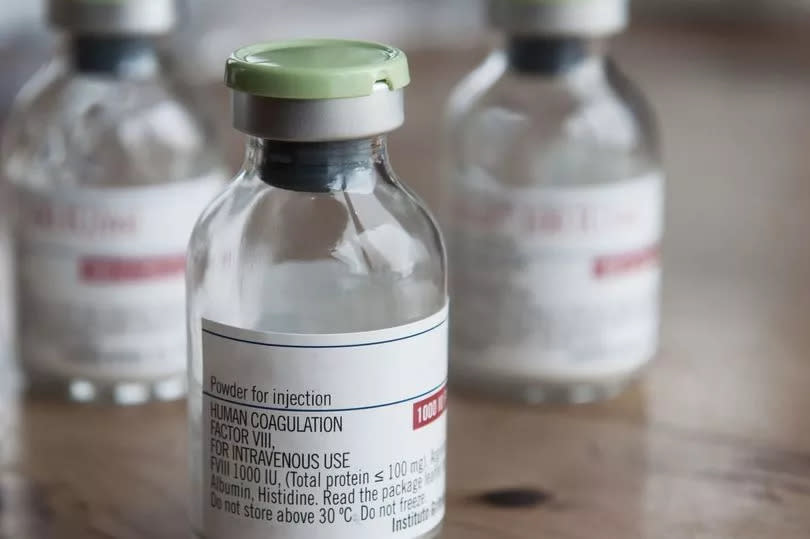'Needless' blood scandal 'could largely have been avoided' says shocking report highlighting 'catalogue of failures'

The contaminated blood scandal resulted in thousands of "needless" deaths - and should never have happened, a heartbreaking report reveals.
It could have “largely but not entirely been avoided”. And there were a “catalogue of failures which caused this to happen”.
The Infected Blood Inquiry final report, written by former High Court Judge Sir Brian Langstaff, delivered today lays blame at the door of politicians and the NHS for the scandal which has seen thousands die because they were given blood or blood products by their doctors which contained lethal viruses.
Sir Brian said, when delivering the report: “In families across the UK, people were treated by the NHS and over 30,000 were given infections which were life shattering. 3,000 people have already died and that number is climbing week by week. Lives, dreams, friendships, families, finances were destroyed.
“This disaster was not an accident. The infections happened because those in authority – doctors, the blood services and successive governments – did not put patient safety first. The response of those in authority served to compound people’s suffering.”
Sir Brian’s report will prove vindication for campaigners, including Carol Grayson of Jesmond who, first with husband Peter Longstaff and then following his horrific death due to HIV, has fought for justice for decades.
The Newcastle Haemophilia Centre - at the Royal Victoria Infirmary - was one of many haemophilia units around the UK where patients were given lethal treatment, and not told of the risks.
Sir Brian’s report comes after seven years on from the launch of a public inquiry. He has also said that the Government must pay compensation “now”. That is among 12 lengthy recommendations for the Government to act on.
Sir Brian’s report highlights across 2,500 pages how NHS patients were misled and ignored for decades - and he writes how “hiding the truth” became a key feature of the scandal - with documents event “deliberately” destroyed. Prime Ministers including Margaret Thatcher and John Major also made “unacceptable” statements to the House of Commons about what happened, the report says.
However, the criticisms of Government also encompass those led by Tony Blair and Gordon Brown during the 1990s and 2000s.
Around 100 haemophiliacs in Newcastle were given AIDS in this way - while others were infected through blood transfusions. Thousands also developed hepatitis C. Over the last four decades, at least 3,000 people are thought to have died nationally, though that number could be significantly higher.
In his report, Sir Brian says knowledge of Hepatitis C in “by the end of the 1970s” and of HIV by at least the beginning of 1983 should have seen doctors re-evaluate the treatment they were giving patients. However, Sir Brian’s report details how a culture of “defensiveness” meant this never happened.
The report adds: “Infections, leading to deaths, illness and suffering were caused needlessly to people with bleeding disorders.”
About HIV and AIDs, the report also states: “Haemophilia centre directors knew, or should have known, no later than the end of 1982 (and probably earlier) of the risks of transmission of AIDS by blood and blood products.”
The report also highlighted how there were a litany of failings when it came to patient care - the Inquiry report shows these included:
Complacency about the risk of hepatitis C and being “too slow” to react to the risk of HIV among doctors and the Department of Health
When patients were not told the risks of treatment or a blood transfusion or asked for their informed consent
When patients had samples (for example of blood) tested for illnesses without their consent
And when alternative treatment options were not explored
The Government's attitude to the scandal over the past four years is also criticised - as has a longer-term "hiding of the truth". Sir Brian wrote: "Standing back, and viewing the response of the NHS and of government overall, the answer to the question ‘was there a cover-up’ is that there has been.
“Not in the sense of a handful of people plotting in an orchestrated conspiracy to mislead, but in a way that was more subtle, more pervasive and more chilling in its implications. In this way there has been a hiding of much of the truth."
The Prime Minister is expected to formally apologise to those affected on Monday, before announcing further detail about compensation on Tuesday.

 Yahoo News
Yahoo News 
